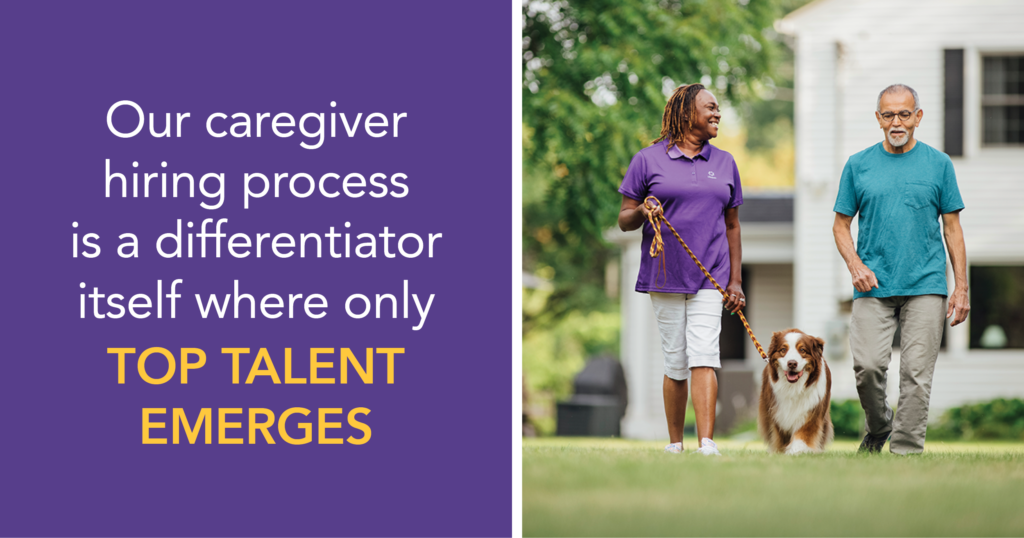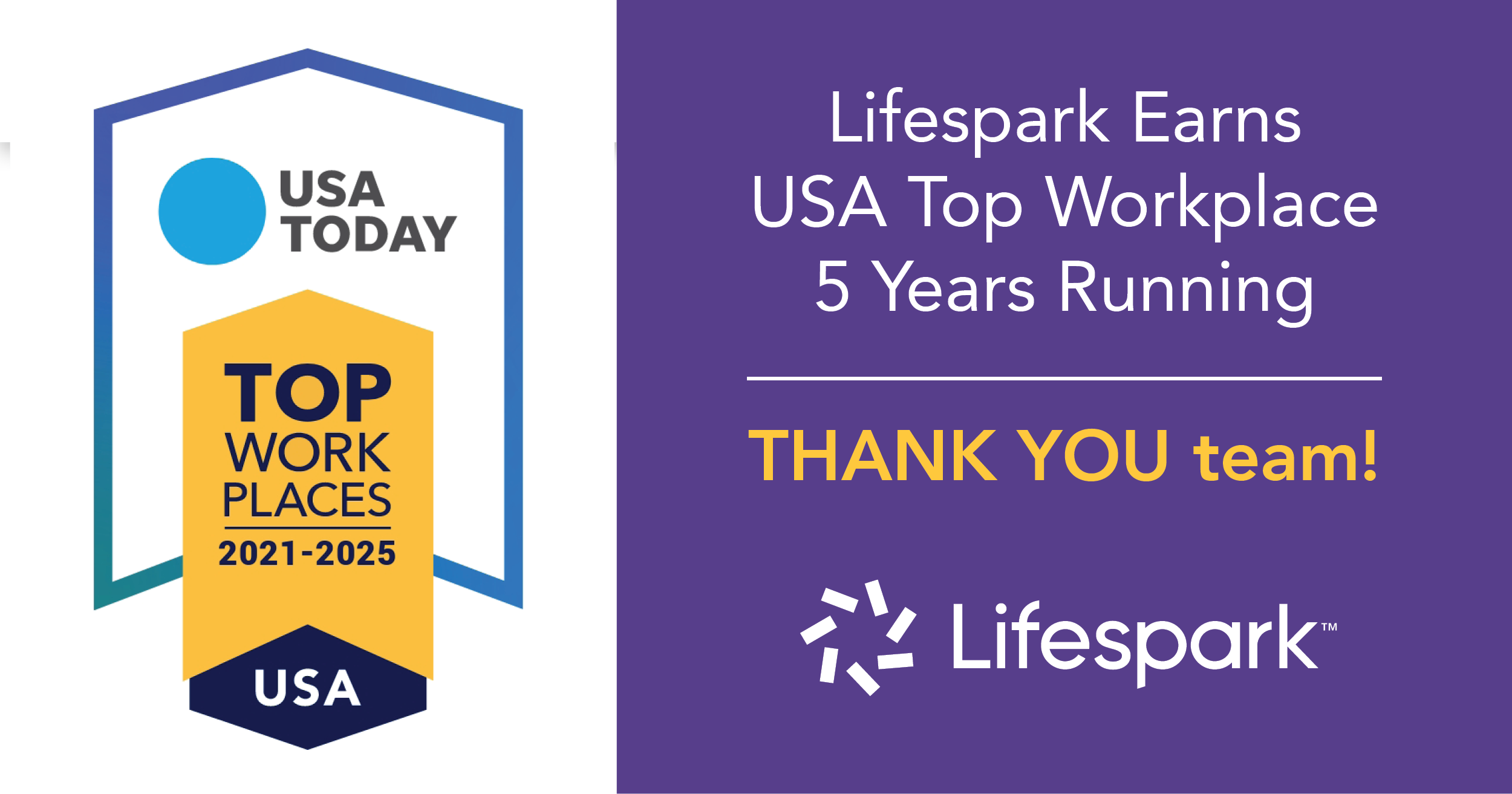
Read time: 2 minutes
“We can have the best intake process, the best clinical assessment, the best office operations, the best staffing, but without top-notch caregivers, we will fail our clients every time,” said Tanya Castillo, RN, Director, Community Home Care at Lifespark. “Our caregivers are the eyes and ears of our clinical teams—the bedrock of our organization.”
More than any other member of the team, Lifespark caregivers spend extended periods of time with their clients, up to several days a week or even daily, so they are often the first to spot physical changes, like skin breakdown, bruising, or edema, or pick up on the need for companionship, transportation, or groceries.
“Their observations and insights help the clinical team address potential problems before they become health crises,” Tanya said. “That’s why it’s so important that we hire the best caregivers, treat them with respect, and make ourselves available to them without an appointment 24/7.”
Screening for excellence
As the U.S. population ages and the cost of long-term care increases, the demand for in-home caregivers will keep growing. Still, Lifespark hires fewer than one in ten applicants. Unlike the majority of home care agencies, Lifespark requires at least one year of Certified Nursing Assistant (CNA) experience or to be listed on the CNA (CNA) Registry. “We keep our hiring process intentionally rigorous to make sure that the people will be great additions to the team,” Tanya said.
The hiring process starts with a phone interview with Sharon Fields-Chessor, Lifespark Caregiver Experience Specialist. “I ask the applicant about their experience, what they’re looking for, and their availability,” Sharon said. “I also look at their job history, because if there are long gaps between jobs without a good reason, like a medical issue or young kids, or if they’ve gone from job to job, those are red flags.”
Barring any concerns, if the candidate meets Lifespark’s hiring requirements and they seem like a good culture fit, she will invite them to an in-person interview.
Qualities that matter
In Sharon’s 18 years at Lifespark, she has filled nine different roles, including Community Home Care caregiver. “Knowledge matters, but there are other qualities that are just as important. Do they have common sense? Can they work independently? Are they empathetic and respectful? Do they listen well when I’m talking? And maybe most important, do they love what they do—and do they love working with elders?” she said. “I listen for honesty in how they respond, I read their body language and eye contact, but sometimes you just have to take a chance.”
If the interview goes well, Sharon will extend a conditional offer, contingent upon results from the Minnesota Department of Health screenings and national background checks.
In-depth orientation
The next step is a two-day orientation held at Lifespark Headquarters and led by Christie Diwi, RN, Clinical Manager, Sharon, and Tanya. “We expect the candidates to present themselves as professionals, because how they behave in the classroom is a good indication of how they’ll act when they’re in a client’s home,” Tanya said. “If they’re late without giving us a heads up, if they’re not paying attention, if they’re distracted by their phones, we’ll excuse them.”
The second day of orientation takes place at Lifespark’s Training Center and is dedicated to skills testing. The space is set up like a client’s bedroom with all the in-home equipment a caregiver might use, including a mechanical lift, oxygen concentrator, and medication boxes. Over the course of the day, candidates are tested on 51 different delegated nursing tasks.
“They come in with a care plan loaded onto their app and are asked to complete all the tasks outlined in that plan,” Tanya said. “It’s really impressive what they need to know—everything from medication administration to using mechanical lifts for transfers to catheter care, which we have them demonstrate on Lance, our resident mannequin.”
Unless Tanya, Christie, and Sharon are completely confident in an applicant’s abilities, they won’t pass them. However, if there’s just one skill that needs work, such as applying eyedrops, Tanya or Christie will often provide additional training.
“Once we hire a CNA, we do supervisory visits in the home, so we can see them perform the skills they were tested on but now, with an actual client,” Tanya said.
A personal perspective
Shannon Podewils, Executive Director, Home Health and Hospice at Lifespark, had been training and supervising clinicians for more than 16 years when she suddenly found herself needing their help for her father who became bed-bound after a fall last December.
“My dad needs help with everything—not just all ADLs [Activities of Daily Living], but also sitting up in bed and turning his body,” she said. “If we didn’t have caregivers eight hours a day, seven days a week, my husband and I would have to quit our jobs.” In addition to caregivers from Community Home Care, her father also has Lifespark Skilled Home Health for wound care and catheter management.
What impresses Shannon the most are the caregivers who are confident in their work but are also kind and caring, qualities that are especially important for someone like her father who depends on others for everything. “The caregivers who are competent, confident, and compassionate put us all at ease,” she said. “If money were no object, we’d have Lifespark caregivers here 24 hours a day.”
To learn more about Lifespark’s in-home services and support, visit Community Home Care or call us at 952-345-8770.



